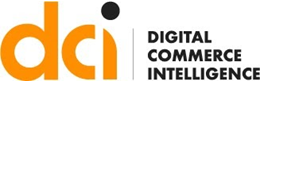This course is designed to provide a broad base coverage of issues related to accounting, such as: basic accounting concepts & their applications to businesses, capital raising, short-term & long-term financial planning, managerial accounting principles & concepts, management planning & control, as well as taxation that are relevant to (future) business owners and entrepreneurs. Business owners and entrepreneurs need the general foundation to help plan and control business operations and finance as well as discussing and negotiating with other stakeholders of the business.
All School of Accountancy courses are designed to meet certain learning goals and objectives. Some learning goals are addressed at course level, some at program level. This course specifically contributes to the development of the following course level learning goals:
- Our students can recognize, develop, measure, record, validate and communicate financial and other related information.
- Our students can analyze, synthesize and evaluate financial and other related information for decision making in a management context.
- Our students understand and can apply business concepts and principles.
- Our students can communicate effectively in a business context.
- Our students understand the principles of leadership and team building in a business context.
- Our students can recognize and incorporate ethical and social responsibility considerations in decision making.
Students are expected to demonstrate the following technical abilities upon completion:
- Understand and able to choose among different incorporation options available to entrepreneurs, in particular the incentives, income tax and corporate tax implications in Singapore.
- Understand the general terms on financial statements without going through detail double entries and to apply them to real businesses.
- Compute simple ratios and make inferences based on reasonable examination of financial statements, which are critical for business and funding purposes.
- Understand and be able to manage critical factors which include short and long-term financialplanning, pricing of products, and managerial planning and control systems for small businesses as well as new start-ups.
- Understand the increasing relevance of recent trends, such as: sustainability accounting; and how it affects the bottom line for entrepreneurs.
- Appreciate the importance of having good business ethic.
In addition, learning outcomes should be beyond just technical proficiencies. In particular, this course seeks to develop certain skills and attributes.
- Analytical: Analytical skills will be developed through various problem solving and case analyses. The course will provide the tools for students to use and analyse accounting data, financial reports and information to make informed decisions.
- Communication: Students will be required to actively participate in the class discussions and through written report and discussion of the company analysis project.
- Team work: Team projects, discussions and presentations will be important elements of the course. All students will be required to work in teams. They are expected to work as partners and share the work load.
- Active learning: Students will be expected to venture beyond prescribed readings and text. The company analysis project will allow students to take an active role in their understanding of how the end products of an accounting system serve information need of users.
- Professional ethics: Ethical issues are discussed and cases will be reviewed. This introductory course provides the opportunity to emphasize the needs for the highest ethical behaviour for corporate executives and corporations.

Students identified specific opportunities, gaps, threats and target markets that the service offerings can exploit based on the competitor analysis -- including possible new product mix or pricing strategy. Students also devised a business strategy for the business, including budgeting and profitability analysis.

Students performed an in-depth market analysis on the potential needs of customers within the vicinity of the new and existing locations, as well as a business strategy for the business.